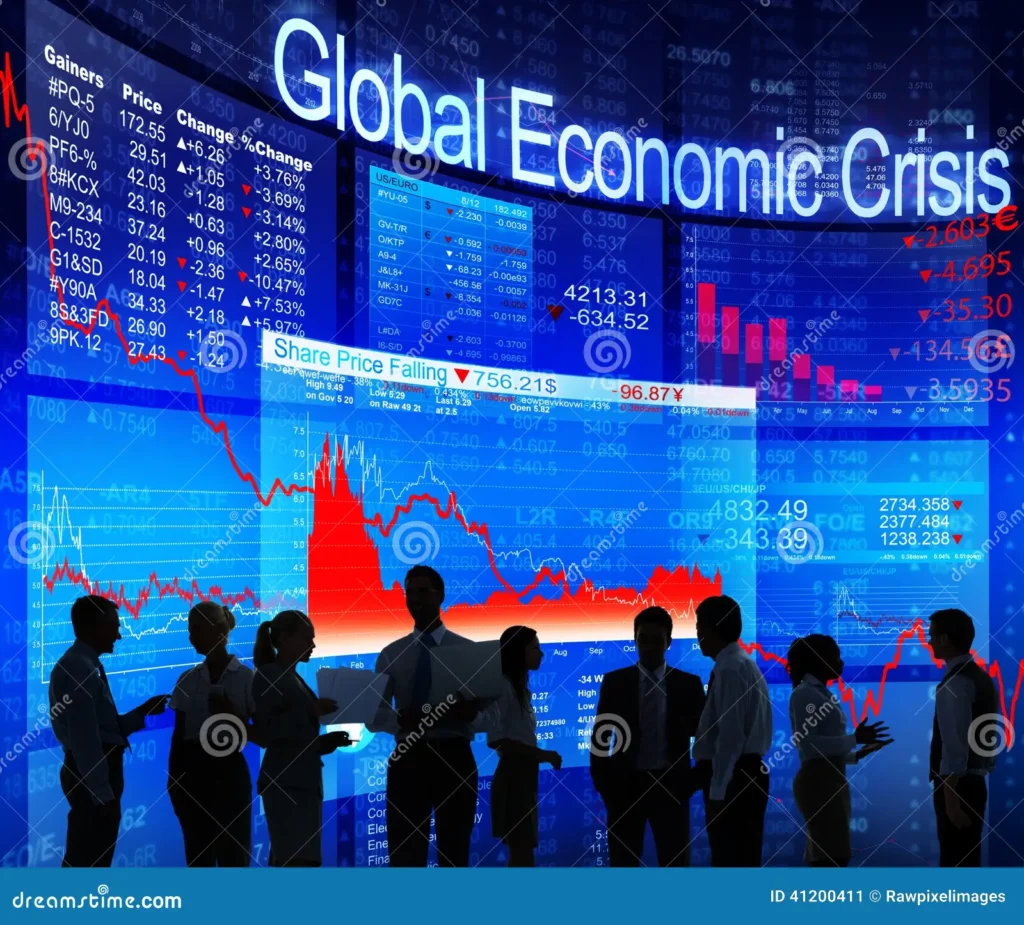Introduction
Economic challenges are a fundamental aspect of both global and local economies, impacting governments, businesses, and individuals alike. These challenges take many forms, including slow growth, inflation, unemployment, poverty, and financial crises. In an increasingly globalized world, these issues become more complex as economies become interconnected, which complicates solutions and makes it crucial to respond effectively to maintain global economic stability.
Key Economic Challenges
1. Slow Economic Growth
Slow economic growth is a major challenge faced by many economies, especially after financial crises such as the 2008 global financial crisis and the COVID-19 pandemic in 2020. Slow growth means fewer economic opportunities and lower investment, which impacts job creation and overall economic well-being. Ineffective economic policies or political instability can worsen growth rates over the long term.
2. Inflation
Inflation is the rise in the prices of goods and services over time, which decreases the purchasing power of currency. Inflation can result from various factors, such as rising production costs, increased demand, and changes in energy and food prices. High inflation burdens consumers and businesses and can have adverse effects on the economy. Controlling inflation is a priority for central banks worldwide through monetary policies.
3. Unemployment
Unemployment represents a significant challenge for economies, as high unemployment rates negatively impact individuals and society as a whole by lowering income and reducing the standard of living. There are various types of unemployment, including cyclical unemployment due to economic slowdowns and structural unemployment due to changes in the economic structure, such as technological advancements that may replace traditional jobs.
4. Economic Inequality and Poverty
Economic inequality and poverty are major challenges that require effective interventions to achieve social justice and stability. Income inequality increases the gap between the rich and the poor, which can lead to social unrest and instability. Social protection programs, education, and vocational training are crucial tools for addressing poverty and economic inequality.
5. Financial Crises
Financial crises, such as the 2008 crisis, are among the most significant economic challenges facing the world. They lead to economic slowdowns, decreased investments, and loss of confidence in financial markets. Financial crises often arise from asset bubbles, such as inflated property or stock prices, or unsustainable economic policies. Addressing financial crises requires comprehensive measures, including economic policies, government interventions, and robust financial regulation.
Factors Influencing Economic Challenges
1. Globalization
While globalization promotes economic growth and integration among countries, it also increases economies’ exposure to global challenges. When a crisis occurs in a major economy, it can quickly affect other countries due to economic interdependence, making economic challenges more complex.
2. Technology and Innovation
Technology is a crucial factor in the economy; new technologies can replace traditional jobs, leading to higher structural unemployment. However, technology also creates new economic opportunities, such as in the digital economy and artificial intelligence, which can enhance productivity and drive growth.
3. Climate Change
Climate change is an escalating challenge with economic consequences. Natural disasters such as floods and droughts can cause substantial economic losses, particularly in agriculture and industry. Governments need to implement policies to adapt to climate change, including investing in renewable energy and enhancing economic resilience.
4. Economic Policies
Economic policies play a vital role in addressing economic challenges. These include monetary policies, such as controlling interest rates and inflation, and fiscal policies, such as government spending and taxation. Policies need to be flexible and effective to adapt to economic changes and achieve stability.
Strategies for Addressing Economic Challenges
1. Economic Reforms
Economic reforms are essential tools for boosting growth and addressing challenges. Reforms may include improving the business environment, stimulating investment, and developing infrastructure.
2. Education and Vocational Training
Education and vocational training are essential tools for addressing structural unemployment and economic inequality, as they can prepare individuals for modern jobs and meet the evolving demands of the labor market.
3. Strengthening Social Safety Nets
To mitigate the effects of economic inequality, social safety nets like healthcare, education, and income support programs should be strengthened to ensure economic justice and improve the standard of living for lower-income groups.
Conclusion
Economic challenges are an integral part of modern economies, requiring collaborative efforts from governments, institutions, and businesses to address them. Through effective economic policies, education and training, and sustainable development, economies can overcome these challenges and promote stability and sustainable growth.


